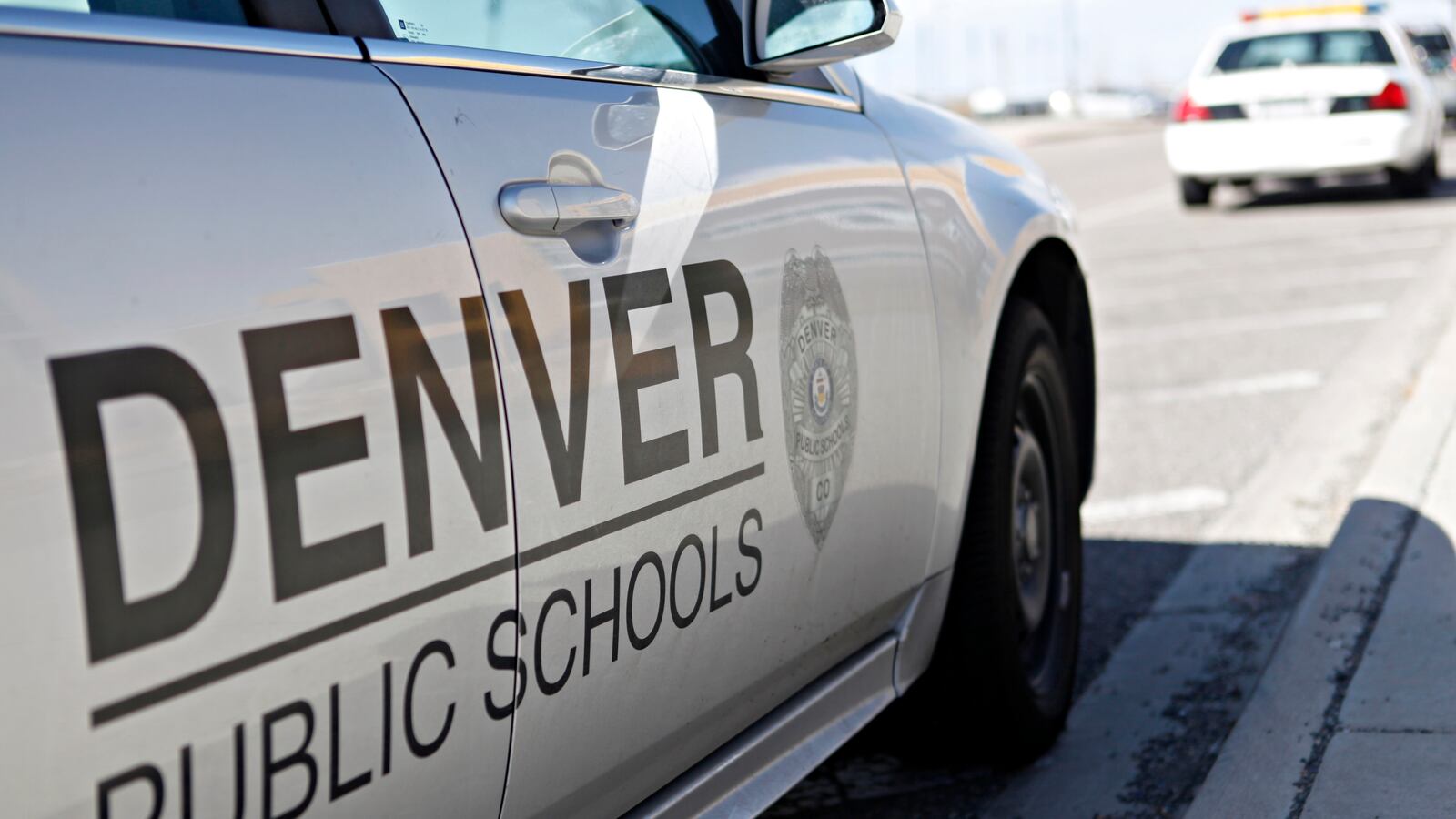School safety patrol officers in the Denver district would get the authority to arrest students and write tickets under an idea being explored by the district’s safety department.
The head of Denver Public Schools’ safety department says the goal would actually be to end the “school-to-prison pipeline” that criminalizes students for misbehavior at school.
The idea is that giving more authority to school safety officers who have experience with children and training in the district’s restorative justice model would mean outside police get called less often, even for matters that are potentially criminal.
This is not yet a formal proposal, but the idea is already generating pushback.
Local organization Padres y Jóvenes Unidos has worked for years to reduce harsh disciplinary practices in the district, and its staff say certifying safety patrol officers as police officers would represent a big step backward.
“To do this would undo everything you have stood on national platforms bragging about,” said Monica Acosta, the organizing director at Padres y Jóvenes Unidos. “Going down this road would double down on policing and criminalizing students of color.”
About 77 percent of the 92,600 Denver Public Schools students are children of color. Approximately 67 percent of students come from low-income families.
Police in schools is a controversial topic in Denver. Staff and students at an alternative school called RiseUp Community School are speaking out this week about an incident in which Denver police searched for a student the principal told them wasn’t there. The principal said police officers pulled their guns on a teacher during the search.
The incident sparked intense backlash – and an apology from Denver Public Schools Superintendent Tom Boasberg.
“What happened should not have happened,” he said at a school board meeting Thursday night. He said the district will participate in a city investigation of the incident and work “to ensure something like this does not ever happen again.”
RiseUp student Mary Jimenez said she and her peers were left feeling disrespected and unsafe.
“Because we are students of color and students of low-income, we get harassed and pushed around and we’re expected not to fight back,” Jimenez told the school board.
Although the incident involved city police officers, not district safety officers, community activists said it’s an example of why law enforcement doesn’t belong in schools. Armed officers create a hostile learning environment, they said.
But Denver Public Schools Chief of Safety Mike Eaton said school policing is different than municipal policing. Whereas city police would be more likely to use the criminal justice system to respond to a report of a student getting into a physical fight or having illegal drugs on campus, Eaton said district officers would be trained to first look to the discipline policy.
The policy emphasizes that consequences should be age-appropriate and that the focus should be on correcting student behavior. “Interventions should provide students an opportunity to learn from their mistakes,” the policy says, “and re-engage the student in learning.”
The district safety department employs about 135 staff members, Eaton said. Of those, 35 are armed safety patrol officers who are not assigned to a particular school but respond to incidents across the district. Those are the only officers the district would seek to certify as police, he said. Unarmed school-based campus safety officers would not be certified.
Authorizing any new group as police officers requires approval from state lawmakers.
Denver Public Schools already has 16 “school resource officers,” which are city police officers assigned to work in its large high schools and a few middle schools. Eaton said his aim would not be to increase the number of school resource officers but rather to give the district’s own security staff the discretion to handle police matters.
“We have the opportunity to directly impact the school-to-prison pipeline, to eliminate or reduce it,” Eaton said. School policing, he said, “focuses on restorative and redemptive practices in dealing with students. Students are young. They’re going to make mistakes.”
Several large, urban school districts across the country have their own police forces, including districts in Cleveland, Atlanta, and Miami. Before moving forward with a proposal in Denver, Eaton said he’d seek input from students, parents, and community members.
He has floated the idea by the Denver school board. The board president and vice president said they’re open to discussing any ideas that would make students safer. But president Anne Rowe said she understands why the community might be concerned.
“I can appreciate the initial reaction of folks when they think about an urban district thinking about certifying their officers,” she said. “That’s going to require a lot of community engagement and getting down to: What are we trying to accomplish by doing that?”

